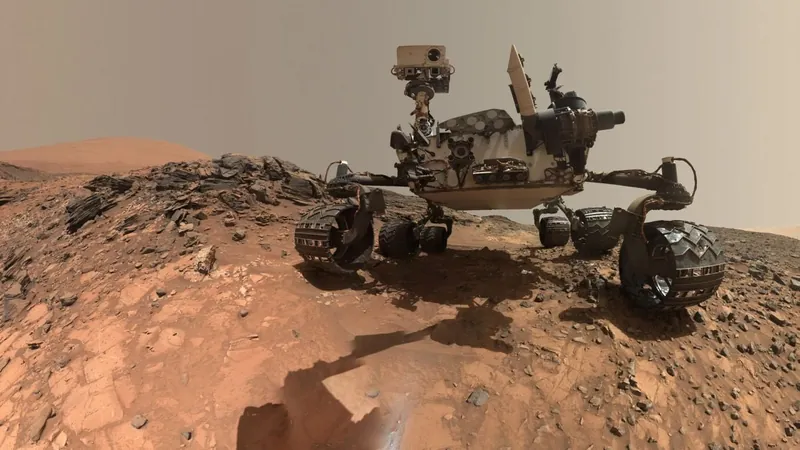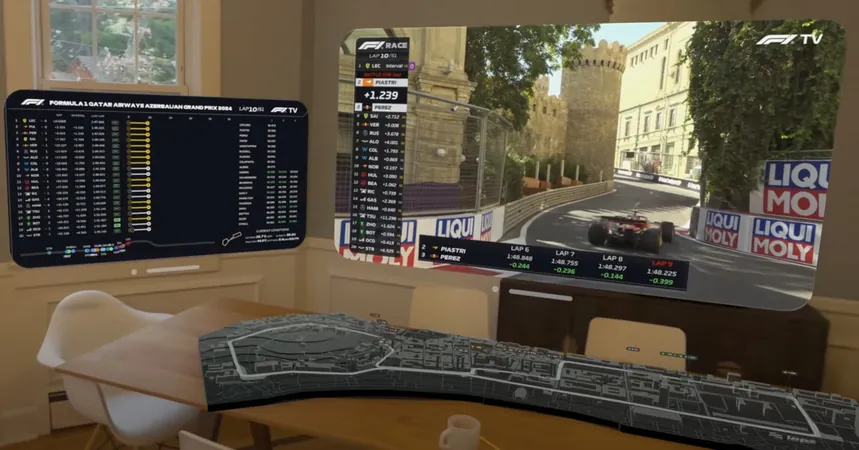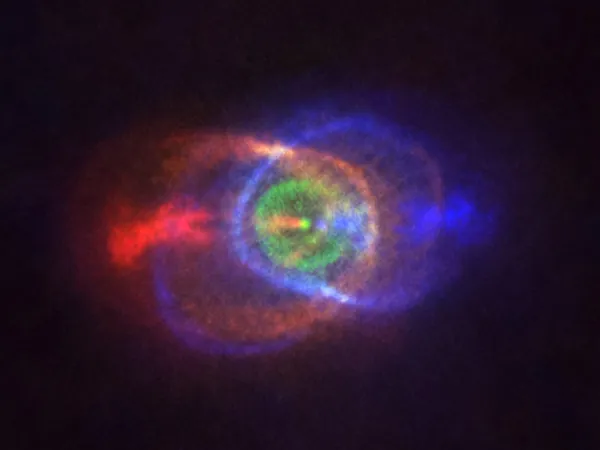
Could NASA's Viking 1 Have Wiped Out Alien Life on Mars? A Shocking Theory Emerges!
2024-11-18
Author: Olivia
Could NASA's Viking 1 Have Wiped Out Alien Life on Mars? A Shocking Theory Emerges!
In a stunning revelation, astrobiologist Dirk Schulze-Makuch from the Technische Universität Berlin has put forth a controversial theory suggesting that humanity may have unintentionally extinguished Martian life nearly half a century ago during NASA's historic Viking 1 mission.
The Viking 1 spacecraft landed on Mars in 1976, embarking on a series of groundbreaking experiments designed to uncover evidence of life. These experiments relied on the assumption that any potential Martian organisms would depend on liquid water, similar to life on Earth. By mixing Martian soil with water and nutrients, scientists hoped to create an environment conducive to life, but the results generated more questions than answers.
Initial findings sparked excitement as they hinted at the possibility of life on Mars. However, after extensive analysis, scientists ultimately dismissed the results as likely false positives. Schulze-Makuch’s theory challenges this conclusion, positing that the Viking landers might have encountered Martian life but accidentally eliminated it by overwhelming it with water.
What If Martian Life Is Not Water-Based?
One eye-opening suggestion by Schulze-Makuch is that life on Mars could be entirely different from what we understand. Instead of existing in a water-rich environment, Martian microbes might thrive in arid conditions, extracting moisture from salt deposits. This hypothesis draws parallels to Earth’s dry regions, such as the Atacama Desert in Chile, where specialized microbes survive by harvesting atmospheric moisture through salts.
In his commentary for the journal Nature, Schulze-Makuch argues that NASA’s water-centric experiments may have inadvertently flooded any existing Martian microorganisms. He emphasizes that Martian life could potentially rely on salts like sodium chloride to maintain hydration, urging future missions to prioritize the search for these compounds instead of focusing solely on liquid water.
A Call to Rethink Martian Exploration
NASA has long followed the "search for water" strategy in its quest to discover life on Mars. However, Schulze-Makuch advocates for a paradigm shift. He proposes that future missions should explore a wider variety of environments by investigating hygroscopic (moisture-absorbing) compounds and substances that can harbor water vapor, as this could open new avenues for finding life where large bodies of liquid water are non-existent.
In an interview with Space.com, he highlighted a study revealing that heavy rainfall in the Atacama Desert decimated up to 80% of native bacteria due to their inability to cope with sudden water influxes. Drawing parallels, Schulze-Makuch speculates that the Viking landers may have triggered a similar disaster for Martian microbes.
Ready for a New Era of Martian Missions?
As we approach the 50-year mark since the Viking missions, the conversation around Martian life is more vibrant than ever. Schulze-Makuch insists that our advancements in understanding the Martian environment warrant a new, carefully orchestrated mission focusing on diverse methods to detect life.
His groundbreaking theory raises essential questions about our search strategies for extraterrestrial life and reminds us that our approaches must evolve in tandem with our growing knowledge base. As Mars exploration continues, Schulze-Makuch’s insights could help answer one of humanity's most profound questions: Is there life on Mars? With this fresh perspective, the next mission might just unravel the mysteries of the Red Planet once and for all!









 Brasil (PT)
Brasil (PT)
 Canada (EN)
Canada (EN)
 Chile (ES)
Chile (ES)
 España (ES)
España (ES)
 France (FR)
France (FR)
 Hong Kong (EN)
Hong Kong (EN)
 Italia (IT)
Italia (IT)
 日本 (JA)
日本 (JA)
 Magyarország (HU)
Magyarország (HU)
 Norge (NO)
Norge (NO)
 Polska (PL)
Polska (PL)
 Schweiz (DE)
Schweiz (DE)
 Singapore (EN)
Singapore (EN)
 Sverige (SV)
Sverige (SV)
 Suomi (FI)
Suomi (FI)
 Türkiye (TR)
Türkiye (TR)